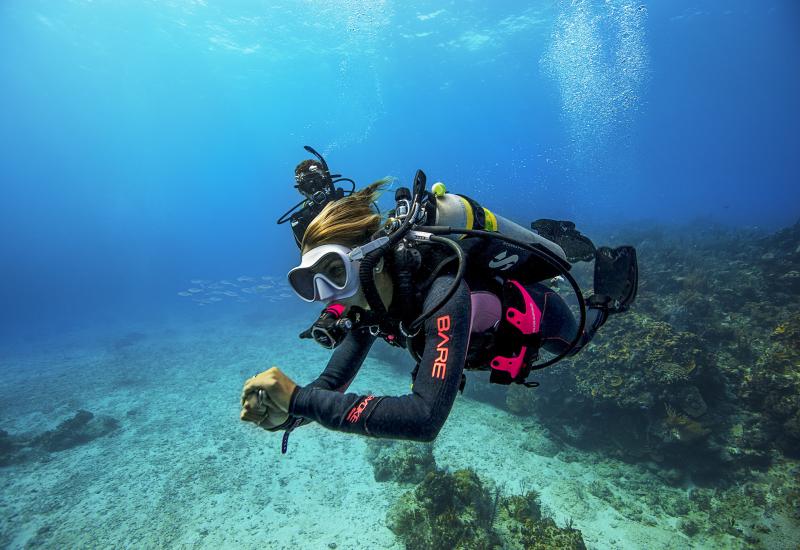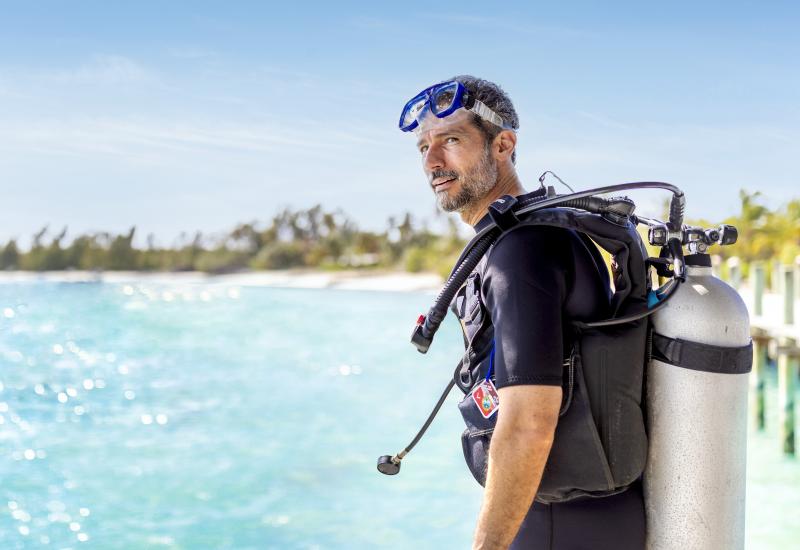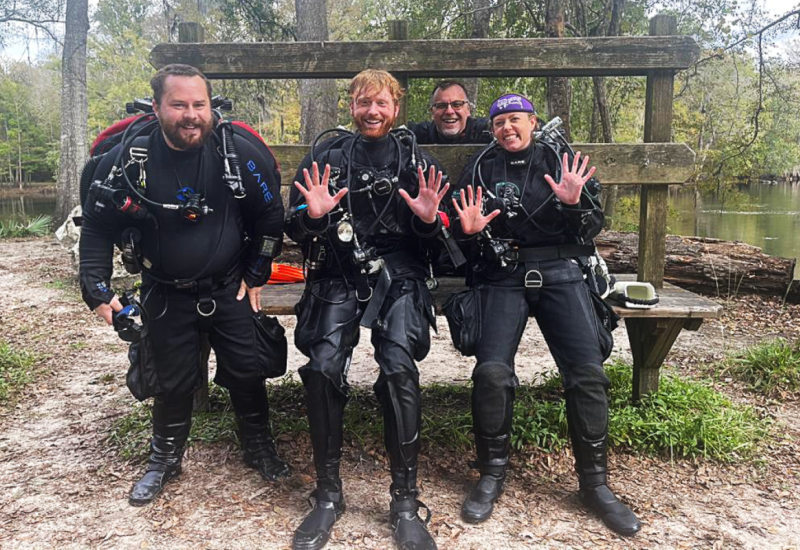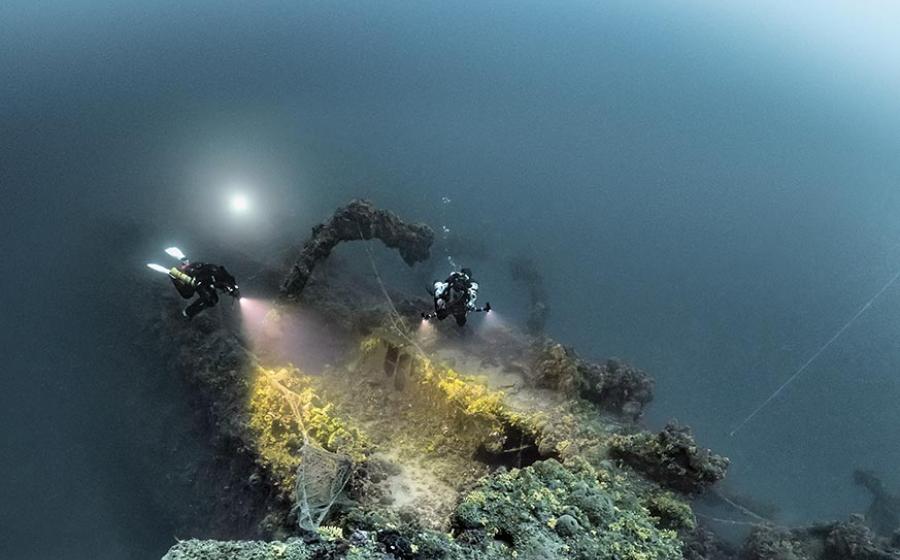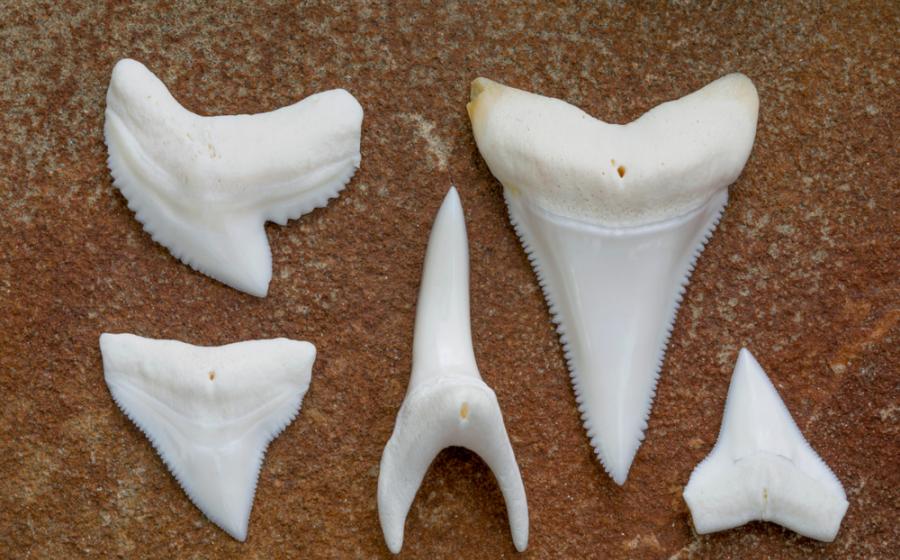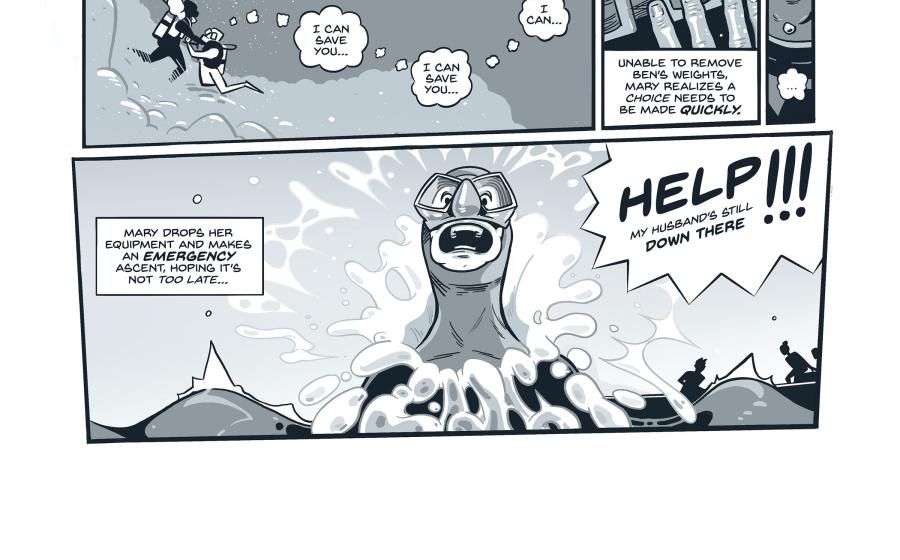How To Be Your Own Buddy

Dive Safety
How to be your own buddy.
Shutterstock
Ask any experienced diver, and they’ll tell you the key to being a good, safe diver is self-reliance — showing up for every dive with the tools, skills and information you need to handle small problems before they become big ones, and not expecting someone else to do it for you. Here’s a checklist of points to make you more self-reliant.
Always Bring Backup
Whether it’s extra lights or a backup analyzer, make sure you always have the right equipment — and the right backup equipment — so you never have to call a dive because of a gear malfunction.
Sweat the Small Stuff
Even a tiny O-ring can be a reason to call a dive if you don’t have a replacement. You should always carry a save-a-dive kit with spare O-rings, fin and mask straps, extra regulator mouthpieces and zip ties.
Quick Fixes
A couple of basic tools can also be a dive-saver. With a set of Allen wrenches and a crescent wrench, you can swap out a leaking low-pressure hose and be back in the water.
Play It Safe
Hope for the best, but prepare for the worst. That means making safety equipment a standard part of your setup. Attach a whistle or air-powered signaling device to your inflator hose, and use your BC pocket to stash surface-signaling gear. DAN sells a great kit that includes a surface-marker buoy, signal mirror and signal strobe.
More Scuba Diving Training:
How To Stay Warm Underwater | How To Beat Jaw Pain | How To Perfect Buoyancy

ShutterstockHow to be your own buddy.
Ask any experienced diver, and they’ll tell you the key to being a good, safe diver is self-reliance — showing up for every dive with the tools, skills and information you need to handle small problems before they become big ones, and not expecting someone else to do it for you. Here’s a checklist of points to make you more self-reliant.
Always Bring Backup
Whether it’s extra lights or a backup analyzer, make sure you always have the right equipment — and the right backup equipment — so you never have to call a dive because of a gear malfunction.
Sweat the Small Stuff
Even a tiny O-ring can be a reason to call a dive if you don’t have a replacement. You should always carry a save-a-dive kit with spare O-rings, fin and mask straps, extra regulator mouthpieces and zip ties.
Quick Fixes
A couple of basic tools can also be a dive-saver. With a set of Allen wrenches and a crescent wrench, you can swap out a leaking low-pressure hose and be back in the water.
Play It Safe
Hope for the best, but prepare for the worst. That means making safety equipment a standard part of your setup. Attach a whistle or air-powered signaling device to your inflator hose, and use your BC pocket to stash surface-signaling gear. DAN sells a great kit that includes a surface-marker buoy, signal mirror and signal strobe.
More Scuba Diving Training:
How To Stay Warm Underwater | How To Beat Jaw Pain | How To Perfect Buoyancy

